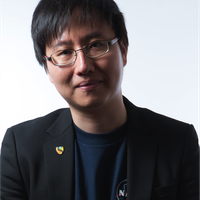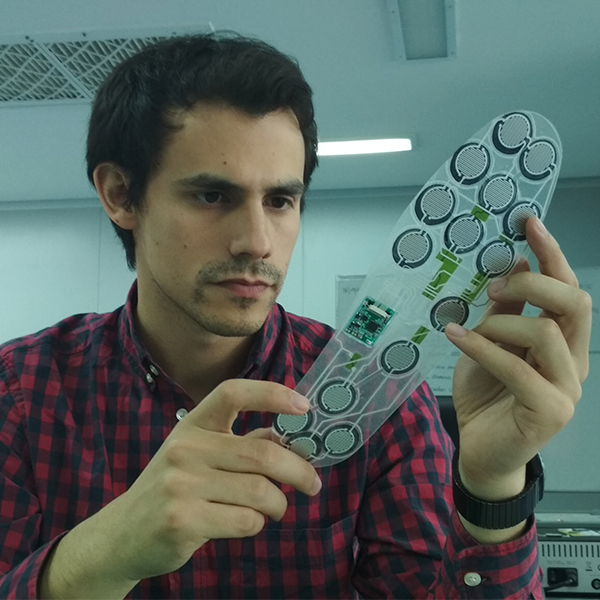A patient walked into a hospital on his own feet. Two weeks later, he came out with a leg amputated below the knee. He lost that limb because he had diabetes and he had not noticed that he had a foot wound. Facundo Noya witnessed this dramatic situation and it motivated him to design something that would compensate for the lack of sensitivity in the extremities suffered by people with diabetes.
Years later, that “something” has materialized into Ebers, a smart insole that monitors each step to prevent the user from suffering an amputation. Thanks to this invention, Noya has become one of the winners of Innovators Under 35 Latin America 2018 of MIT Technology Review.
Diabetes involves the destruction of sensory nerves. This lack of sensitivity causes diabetic patients to unconsciously ignore things that a person without the disease would normally perceive, if regular visual inspections of the extremities are not performed. And even then, the ulcers often appear subcutaneously, invisible to the naked eye until it is too late.
Ebers presents pressure sensors along the entire sole, with higher concentration in the foot’s sole areas where more pressure is usually exerted while walking. This way, at every step, the insole collects the pressure data from these points and compares them with the user's normal pattern. This comparison allows the detection of any deviation caused by the inadvertent presence of a foreign object (a small stone, for example) before it causes a wound, or the incipient appearance of an ulcer.
"Besides comparing pressures, the insole measures the temperature and relative humidity, which helps to detect early-stage inflammation," Noya explains. The goal is to measure any element that may indicate a possible appearance of an ulcer and notify the user. When this happens, the user receives an alert on their phone through the app that collects all the data generated by the insole.
"The usual treatment for a diabetic foot involves the acquisition of an insole that costs around 200 euros," the young Argentinian says. For less than that price, users can purchase the smart insole from Noya, in addition to an annual subscription to the application. The effectiveness of the device is already being tested in hospitals in Argentina and Spain, and Noya estimates that within a year they will be available in the market.
The director of the Unit of Valorization of Investigation and Technological Transfer at the University of the Republic of Uruguay, Atilio Deana, jury member of Innovators under 35 Latin America 2018, considers Noya's project to be “excellent." In his opinion, "the technology is well thought-through from its conception and the social and economic impact it may have will be high."




